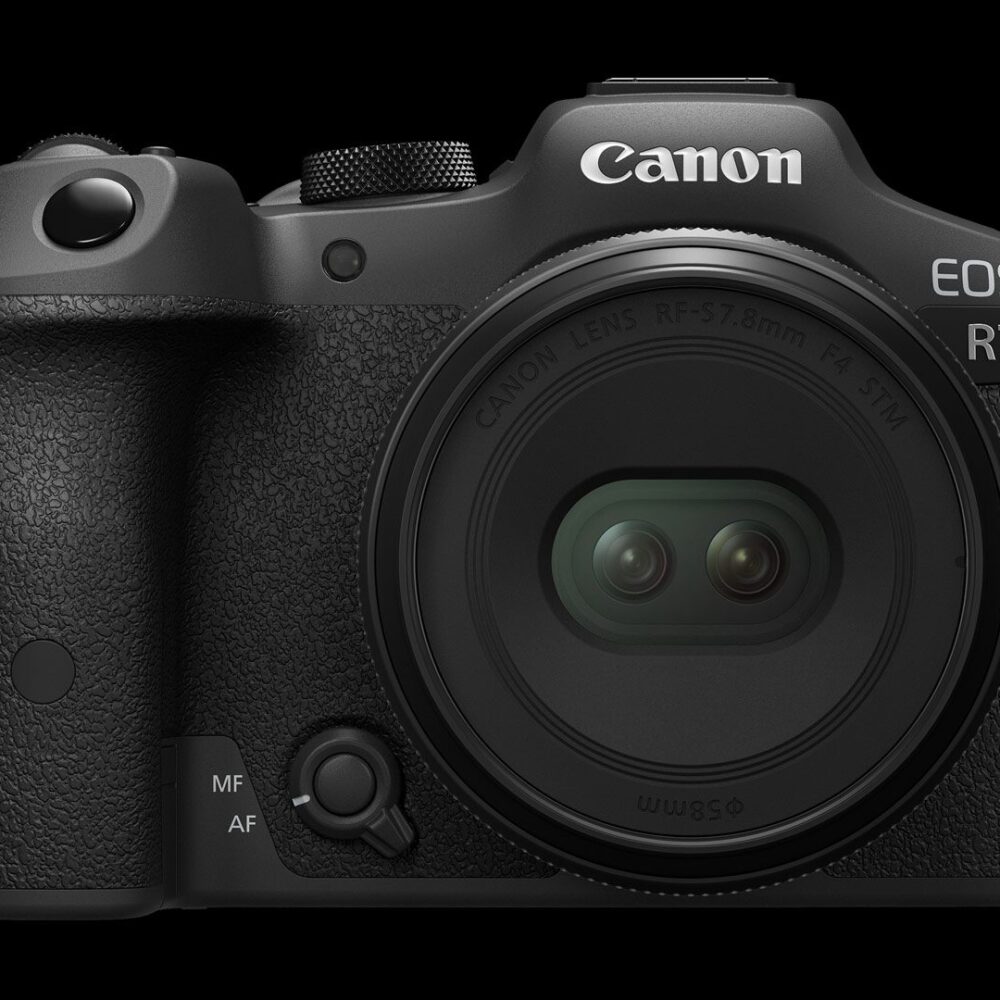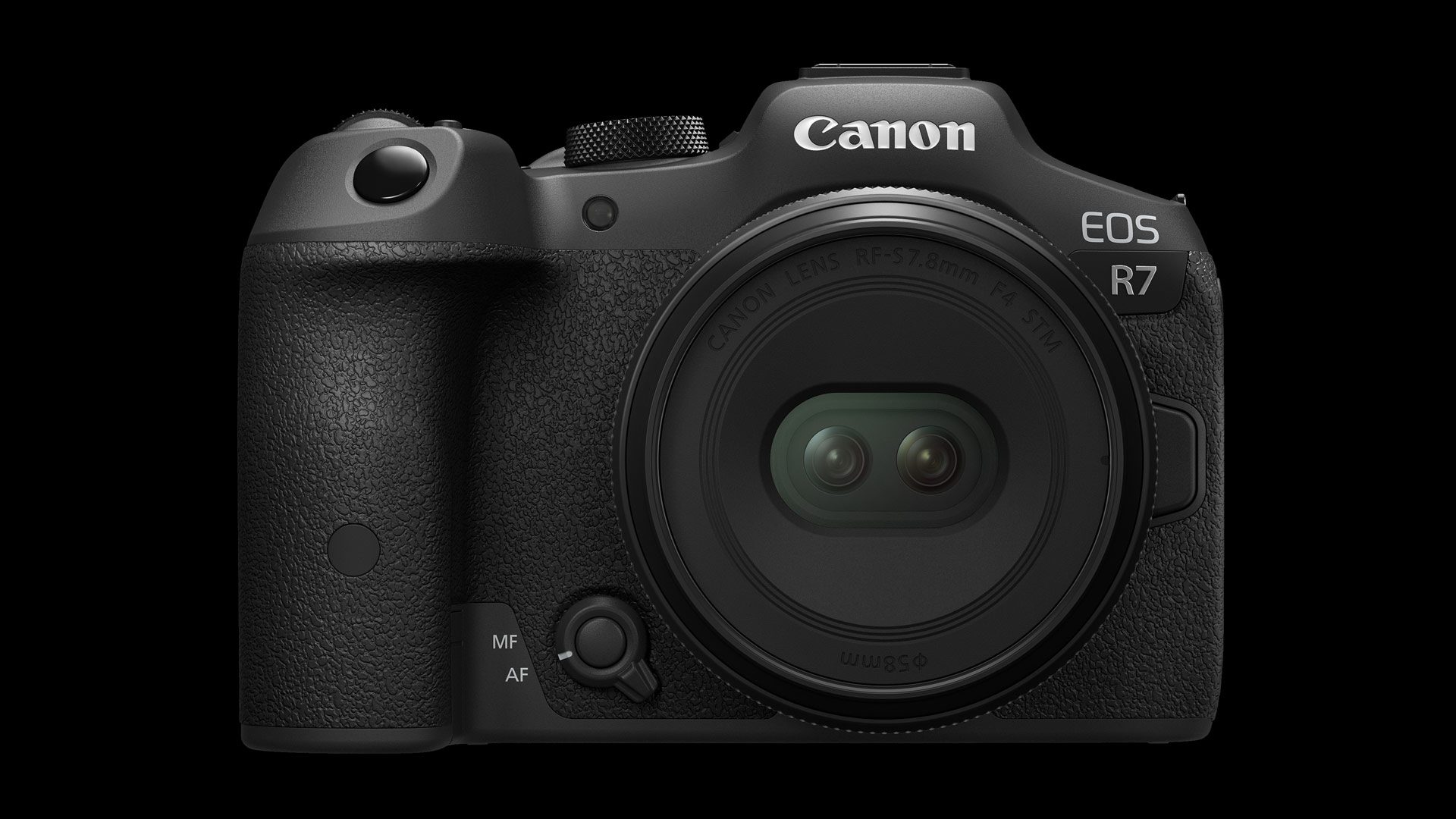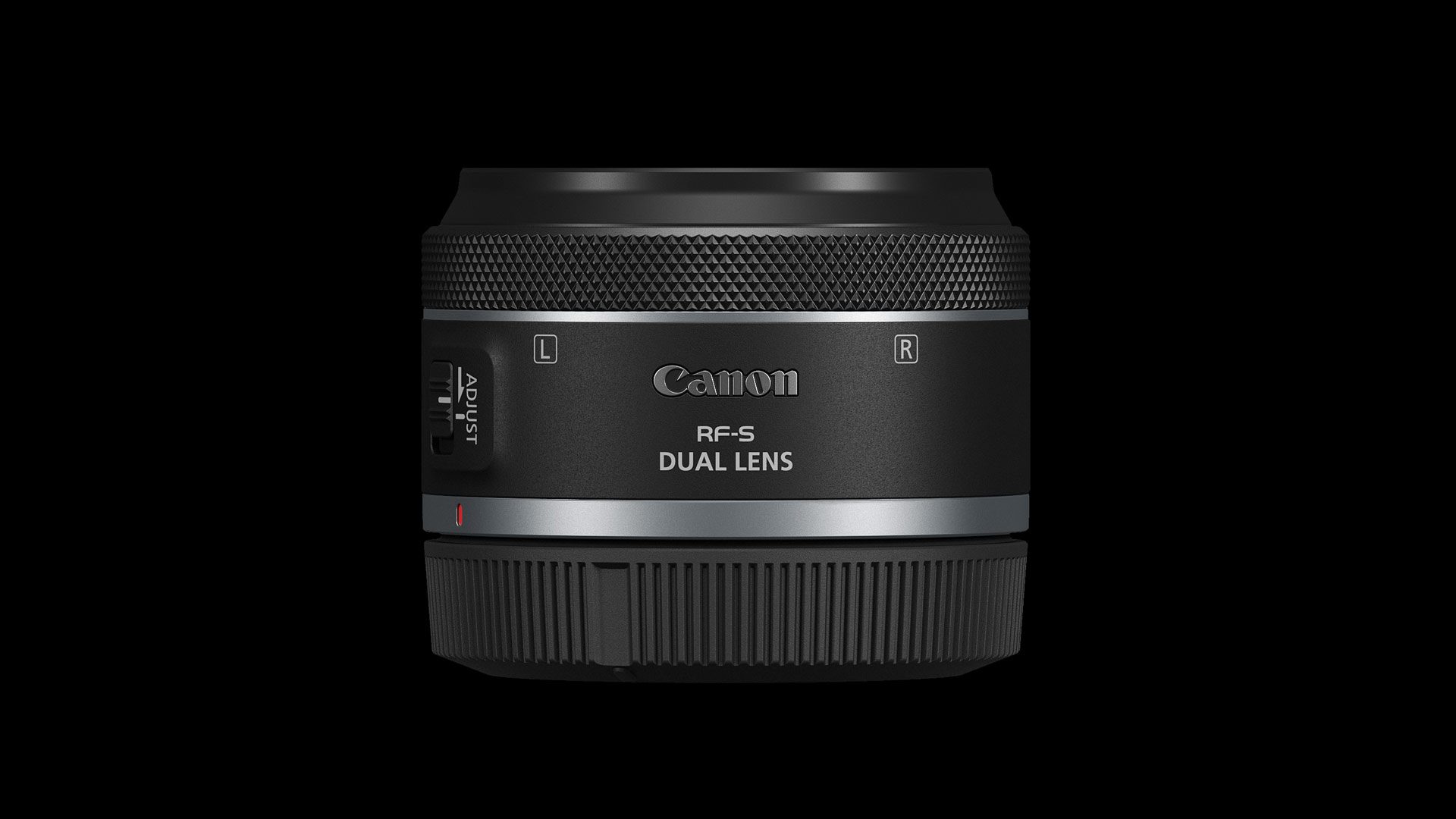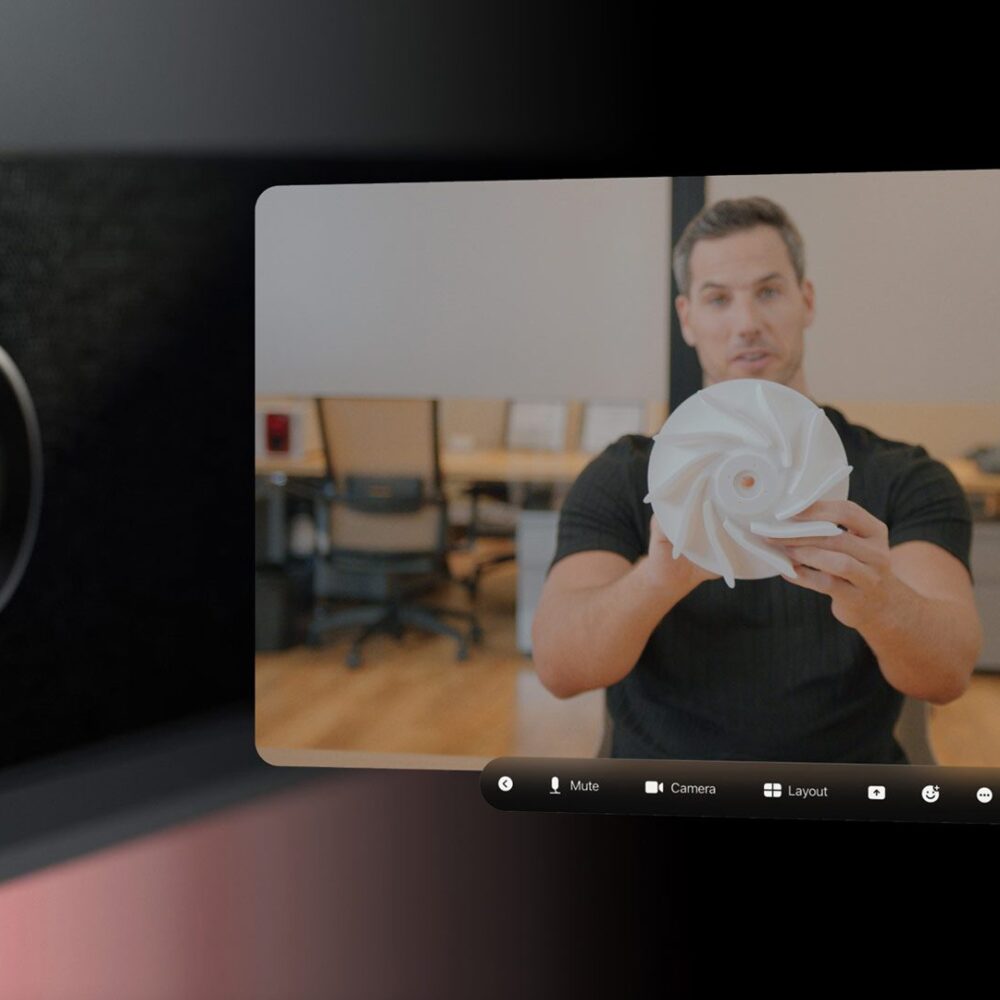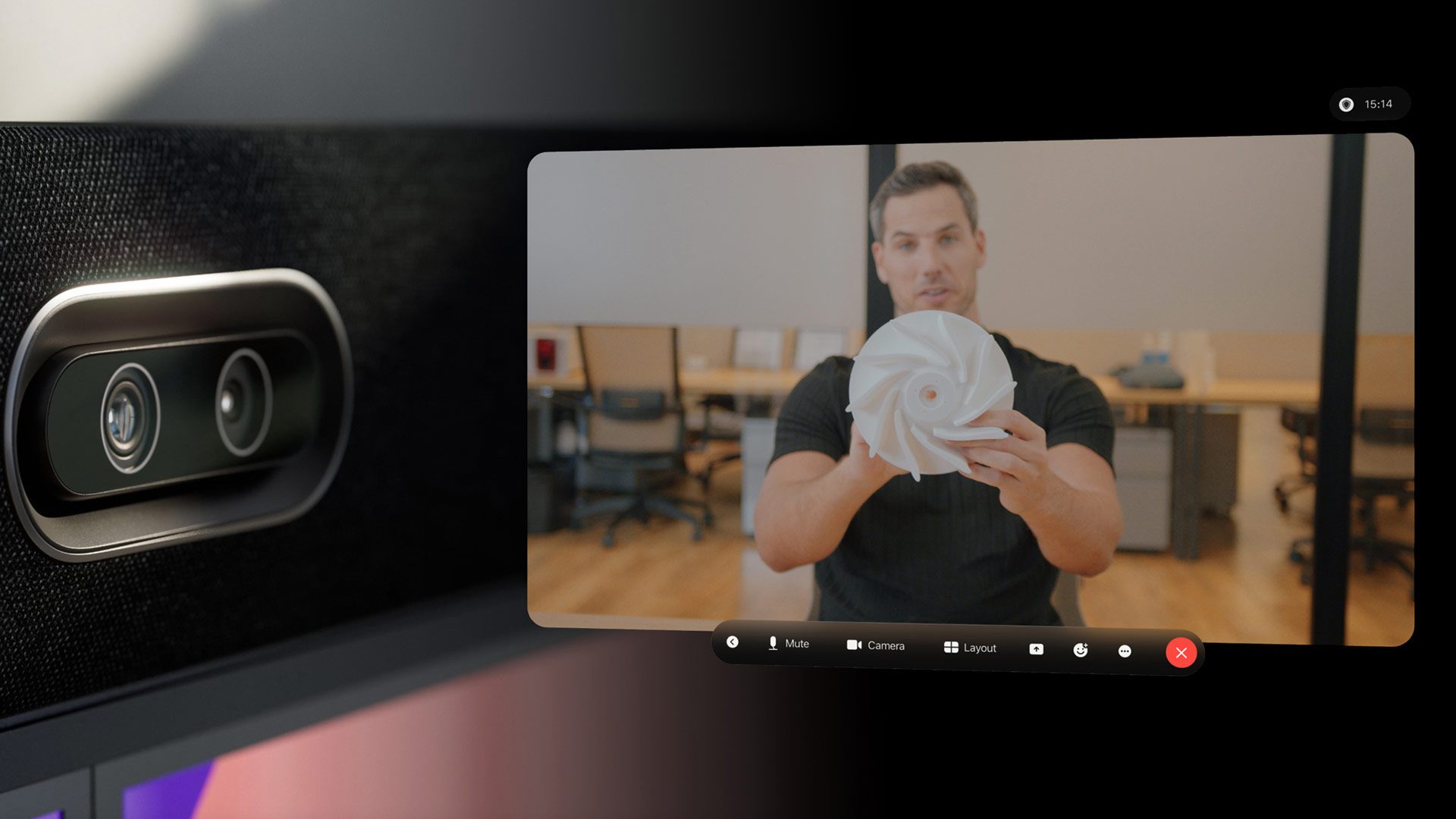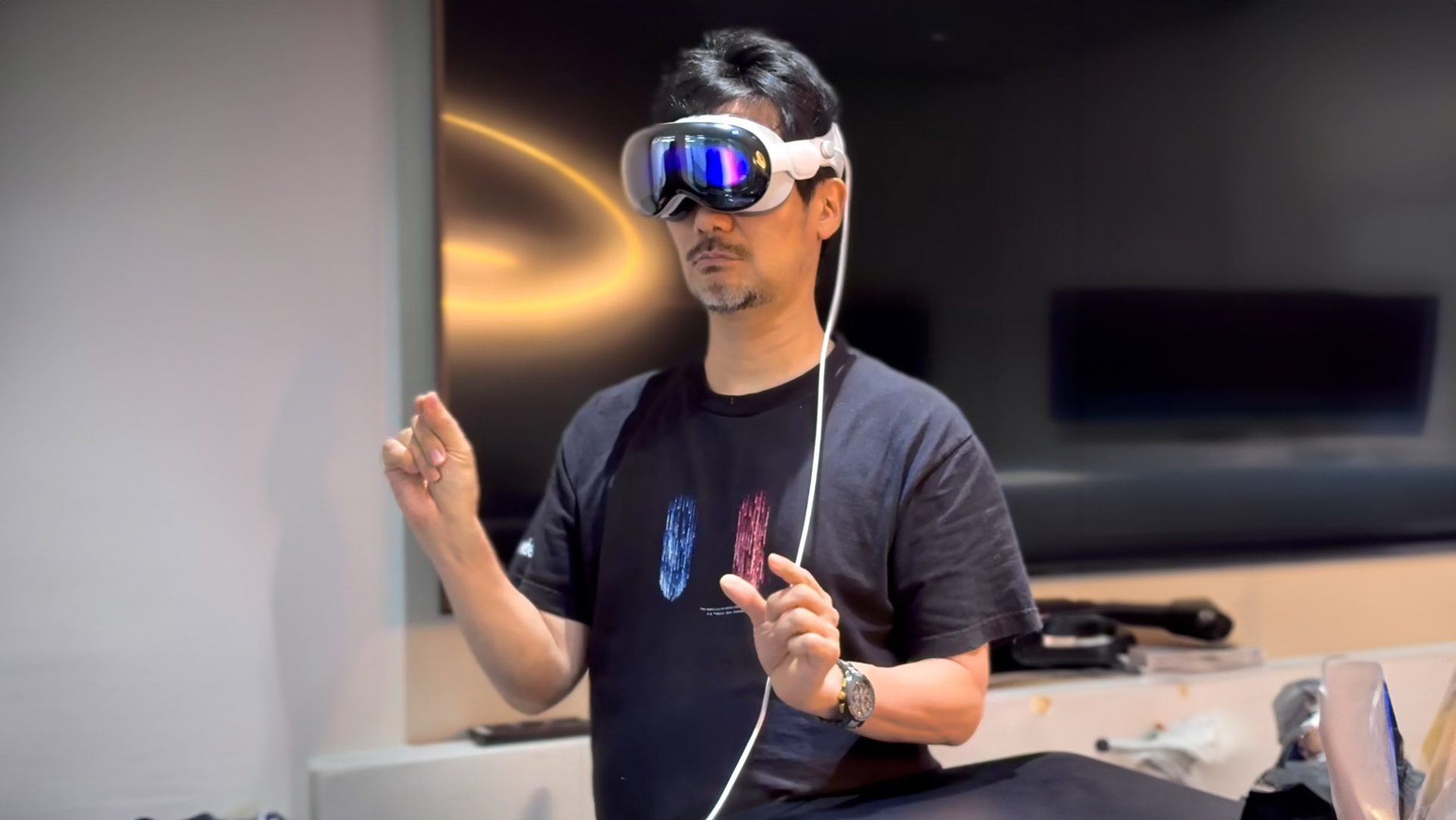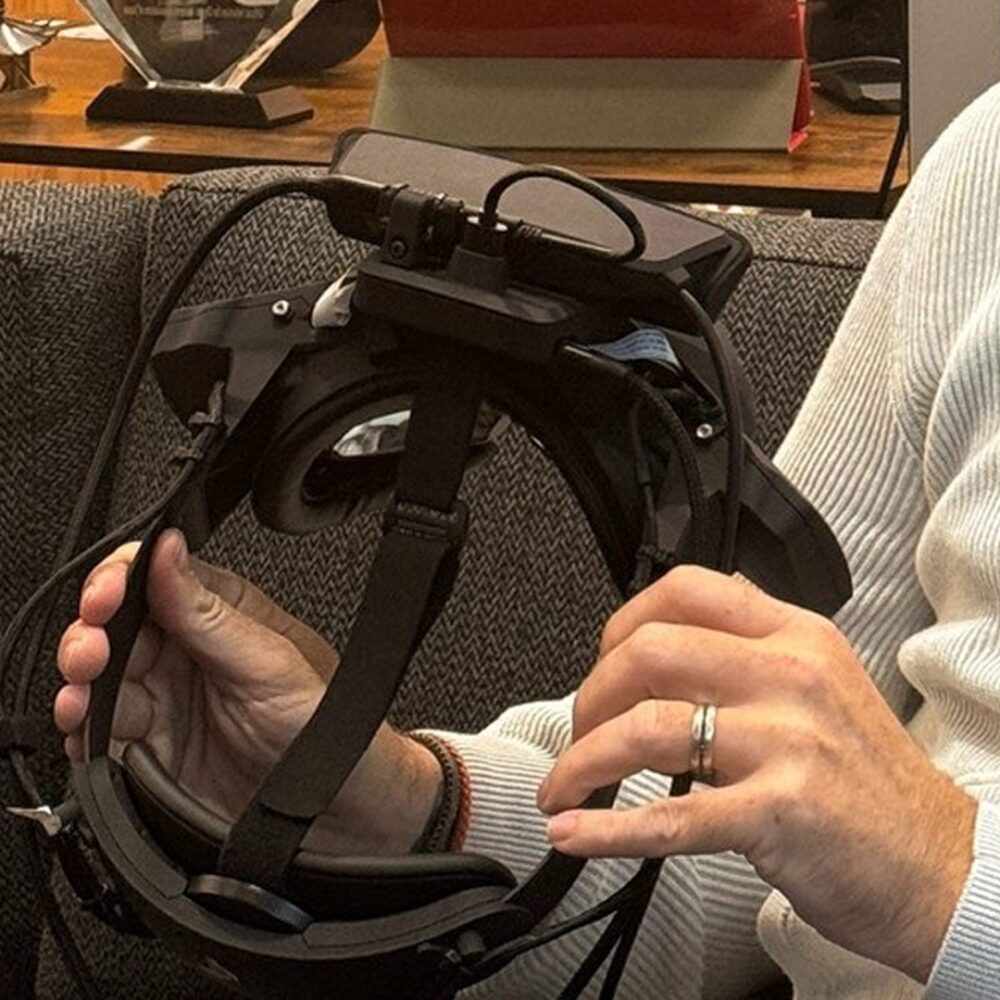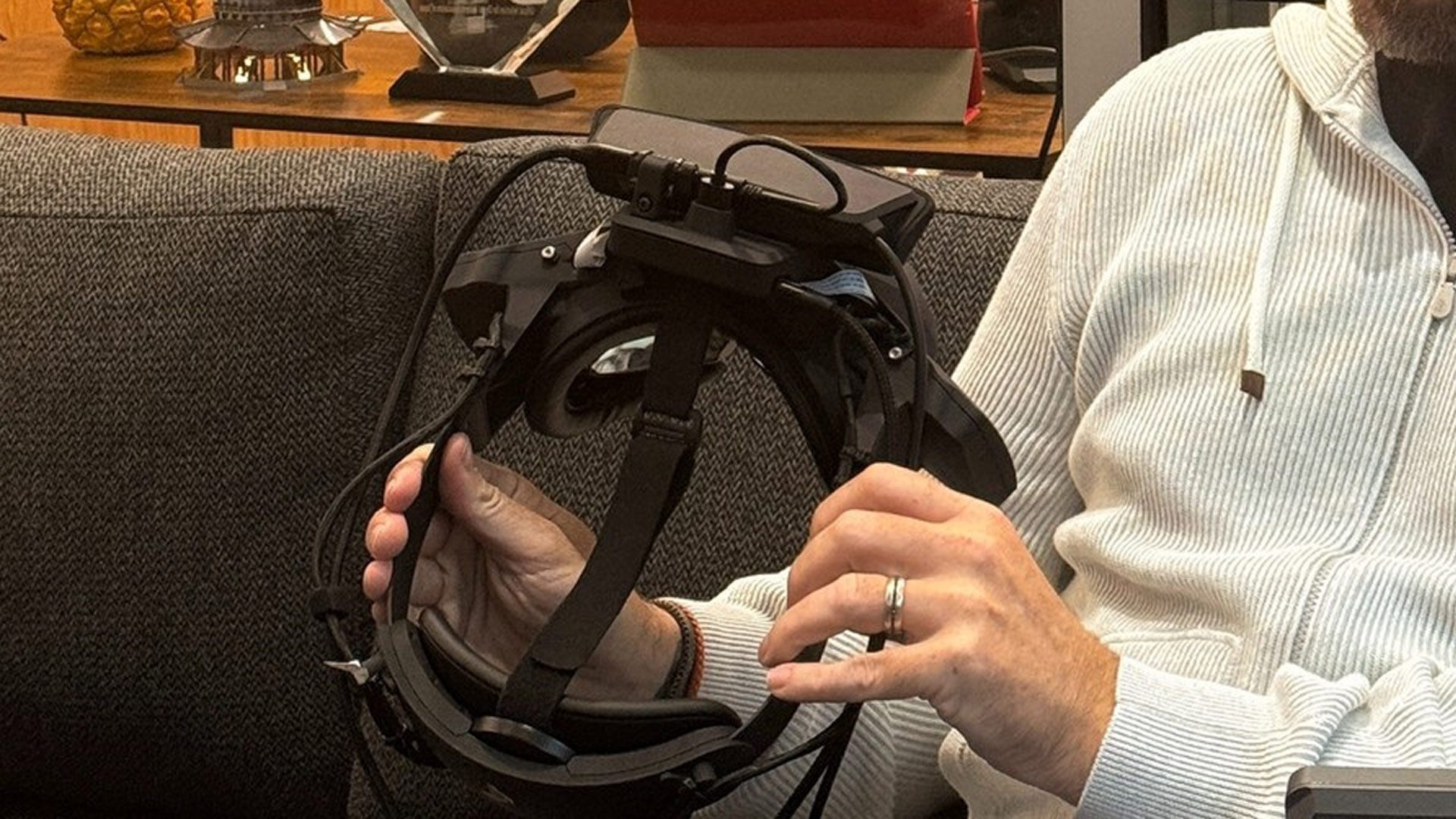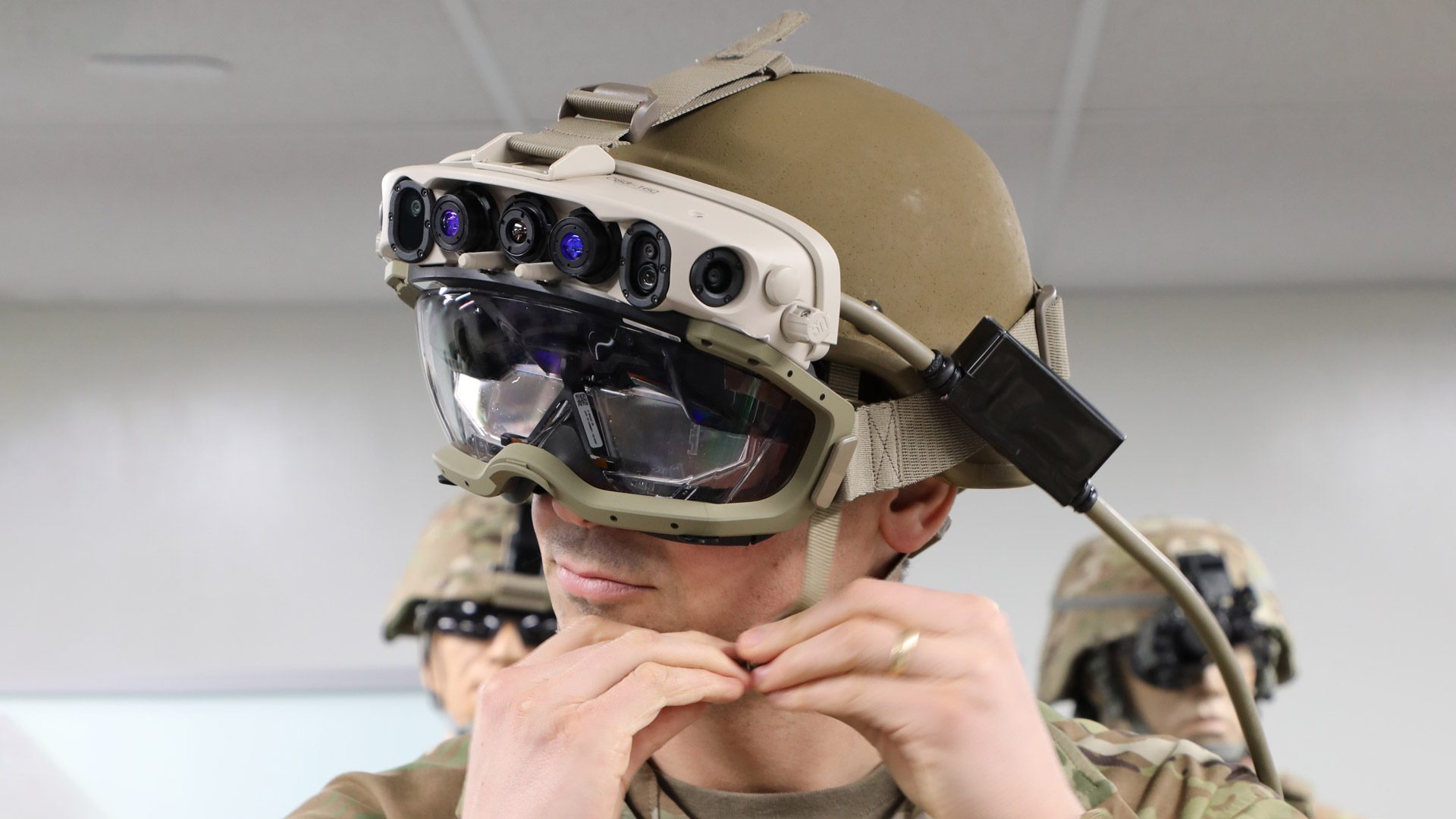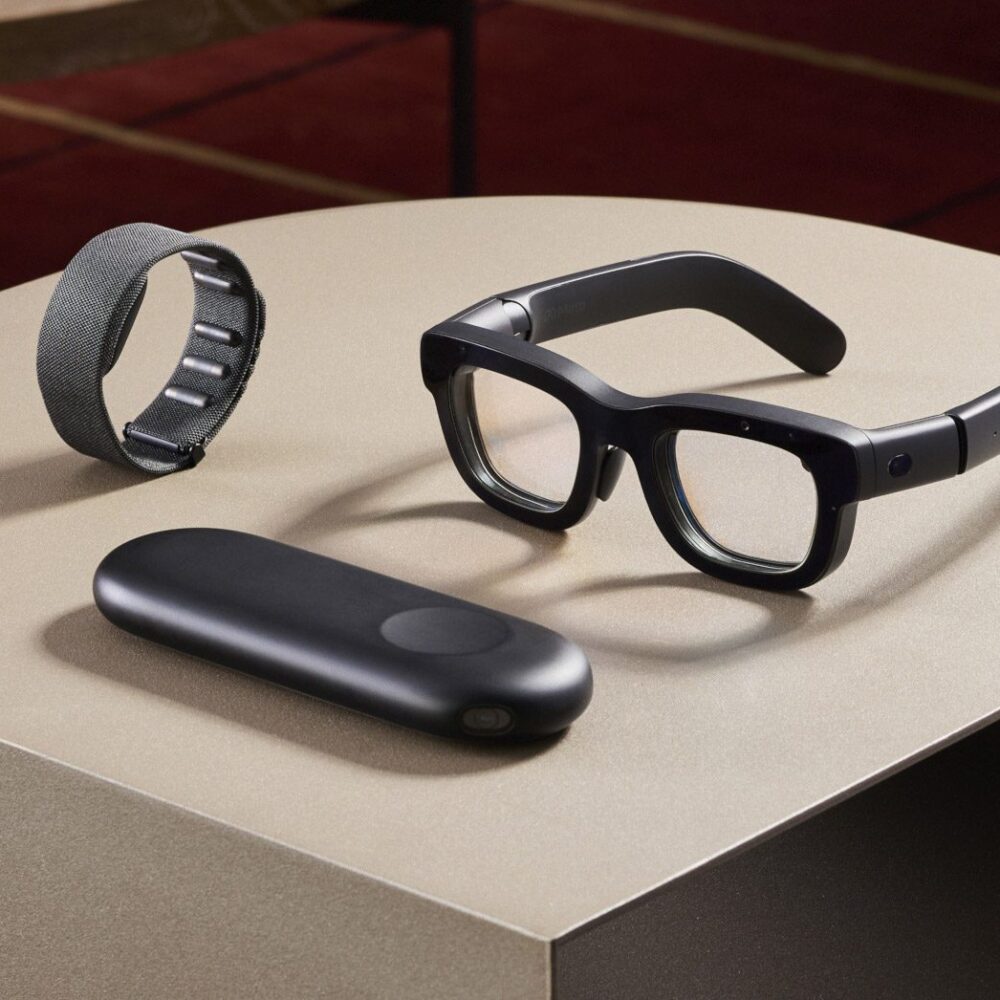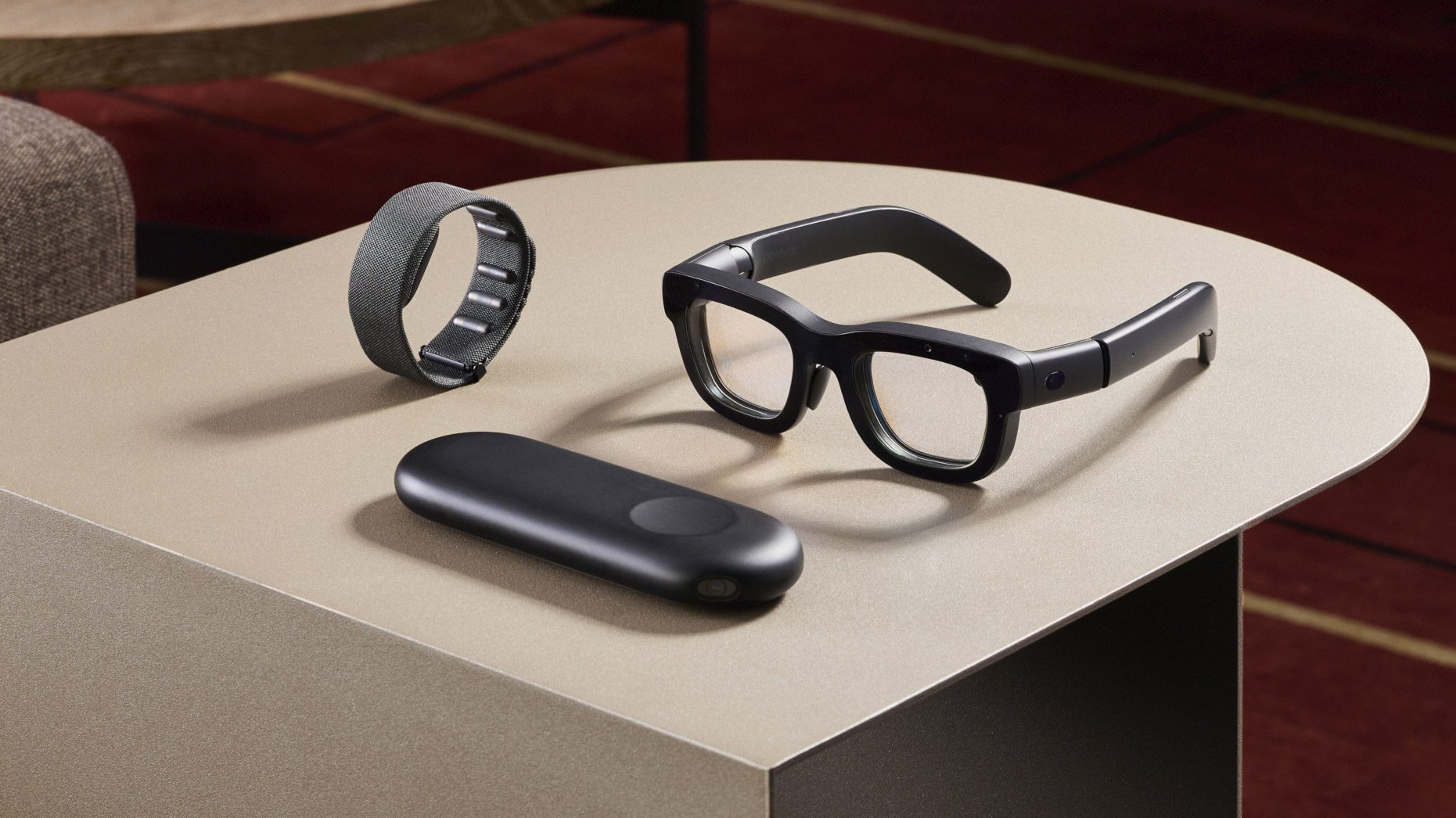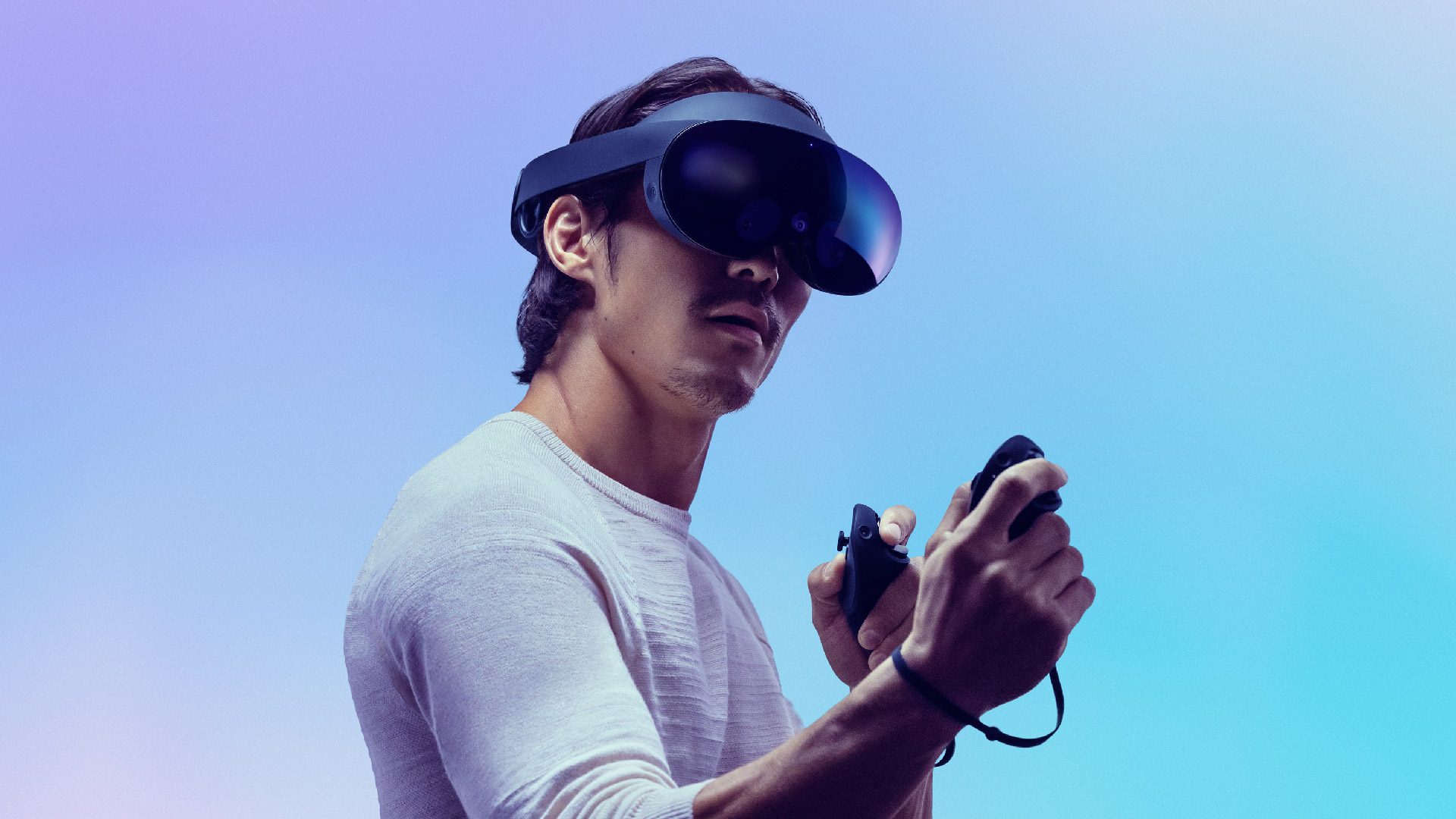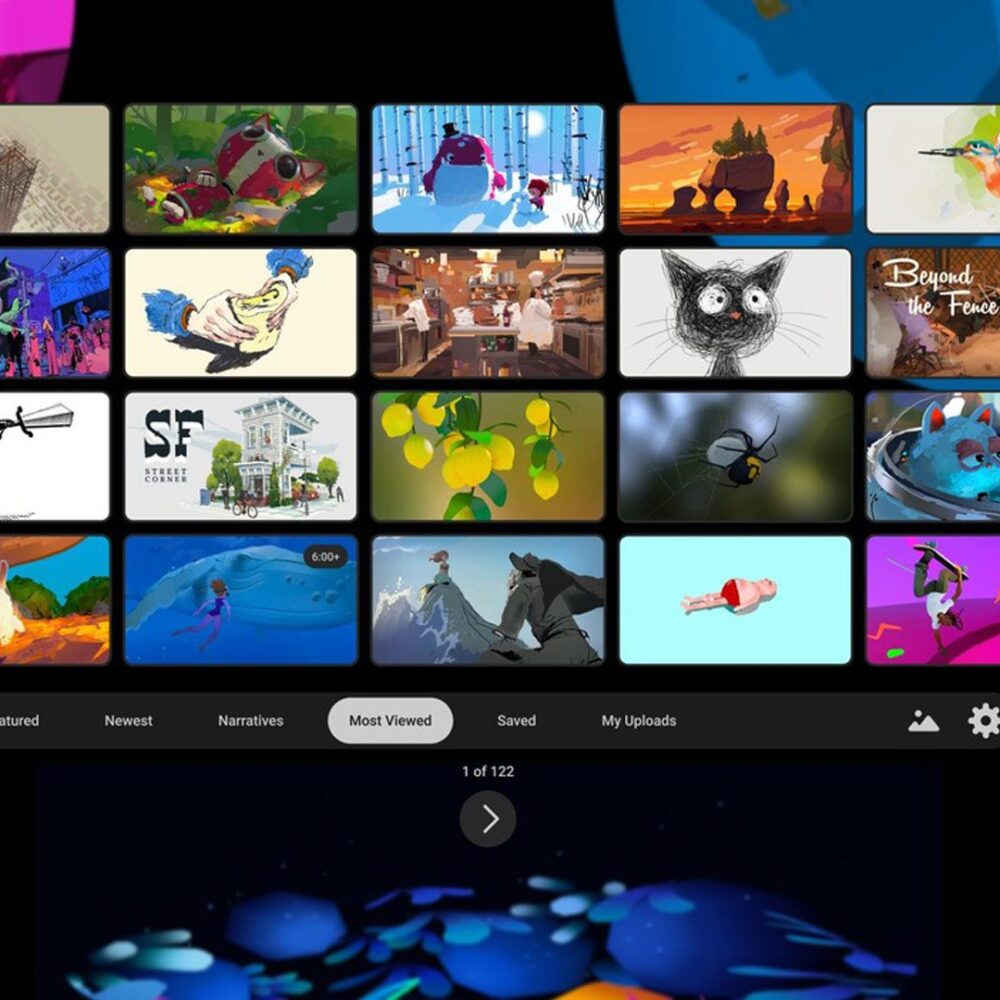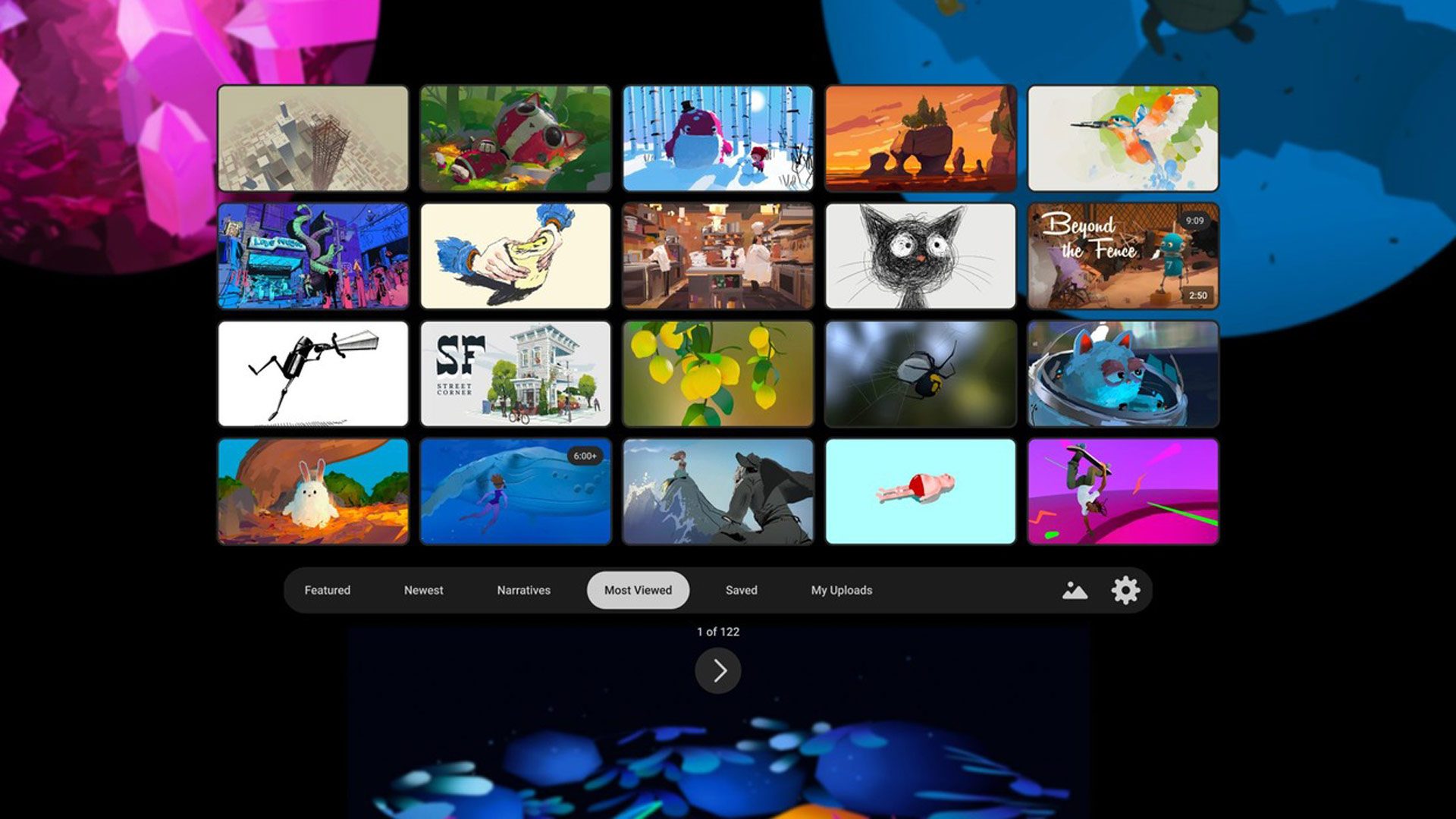Japan-based Shiftall is the latest company making an effort to deliver an ultra-compact VR headset for enthusiasts who are willing to spend big on maximizing their PC VR experience. Despite the tiny package, the MeganeX Superlight headset still manages to deliver the optical adjustments that should be standard for every headset. Though undoubtedly expensive, the headset overall is promising, provided the company can finalize a few tweaks before crossing the finish line.
Available for pre-order in Japan, United States, EU & UK, the $1,900 MeganeX Superlight from Shiftall is purportedly set to start shipping between February and March of next year. You can check out the full breakdown of specs here.
This is a tethered headset designed for the SteamVR ecosystem. Shiftall is selling the headset by itself, which means you’ll need to bring your own SteamVR Tracking beacons and controllers—or drop another $580 to buy them new.
This week I got to check out a prototype version of the MeganeX Superlight headset and found it to be a promising piece of hardware that’s certain to be held back by its steep price.
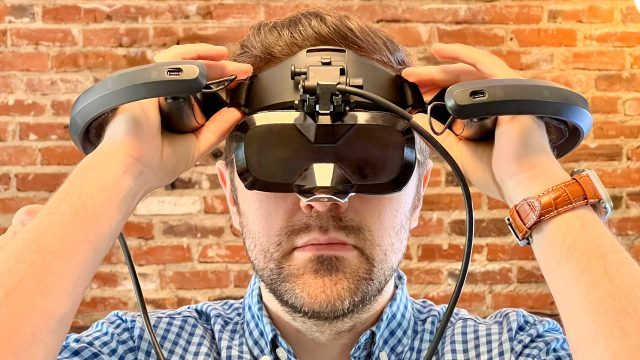
Shiftall CEO Takuma Iwasa told me the headset is primarily targeted toward hardcore VR users, especially those spending long stretches in VRChat. Considering his own claim of more than 3,000 hours in VRChat, it’s clear he has a real understanding of the needs of this kind of customer.
That’s what led the company to try building a compact PC VR headset: Iwasa wants to deliver something that’s lightweight and comfortable for long sessions.
A big part of a VR headset being comfortable is about being able to adjust it to fit each individual. Getting the headset’s lenses into the ideal position for your eyes is crucial to maximizing visual quality and comfort.
To that end, I was happy to see the MeganeX Superlight includes a list of optical adjustments that I’ve long wished was standard on every headset: IPD, eye-relief, diopter, a flip-up visor, and even a lens angle adjustment.

IPD (or interpupillary distance) is standard on most headsets, it’s the distance between the lenses. Matching the distance between the lenses to the distance between your eyes is important to making it easy for your eyes to fuse the stereoscopic image, and for getting your eyes into the ‘sweet spot’ of the lens (the optical center, where the lens has the greatest).
On the MeganeX Superlight, IPD is set by entering your IPD measurement into the software on your computer, causing the headset’s motorized lenses to move into the desired position.
Eye-relief is less common to find on VR headsets. This is the distance from the lens to your eye. Not only is this important for maximizing field-of-view, it’s also important for dialing in the ‘sweet spot’ of the lens. That’s because the sweet spot isn’t just a plane, it’s a volume (technically speaking, this is often called the ‘eye-box’).
On the MeganeX Superlight, the mount which connects the headset itself to the headstrap makes it easy to adjust eye-relief by pinching a pair of pads which allows you to freely slide the headset closer or farther away from your eyes.
Diopter is even rarer than eye-relief. This setting changes the focus of the lens to account for a person’s vision correction needs. Rather than wearing glasses, users can dial in their diopter to enjoy a sharp view.
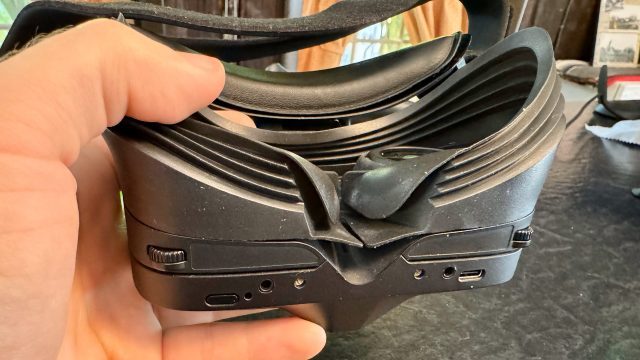
On Shiftall’s headset, there’s a small dial near the side of each lens which is used to adjust the diopter for each eye. Although this is a manual process (ie: you can’t just enter a value and have the headset set it automatically), Shiftall tells me that part of the headset’s setup process will include a calibration screen to make this process easier.
While a growing number of headsets include decent passthrough views via external cameras, if the goal is to simply look outside of your headset, it’s hard to beat your very own eyes. To that end the MeganeX Superlight has a little plunger on the headstrap mount that makes it quick and easy to flip up the visor for a glimpse of the outside world, and to flip it back down when you’re done.
And last but not least—something I’ve seen on only one other company’s headsets—is an independent lens angle adjustment.
Many VR headsets have a pivot at the point where their headstrap connects to the headset, but the angle is entirely at the mercy of how the facepad rests on the user’s face.
On the other hand, because the MeganeX Superlight headset essentially hangs down from your forehead, a small dial on the side of the mount allows you to independently adjust the angle of the headset (and thus the lenses) regardless of how the headstrap is resting on your head.
Taken all together, these adjustments make it easier for a wider range of people to get the best and most comfortable visual experience from the headset.
And if you’re planning to pay nearly $2,000 for a headset that’s not only compact, but also includes a whopping 13.6MP (3,552 × 3,840) micro-OLED display per-eye, you’re definitely going to want it to have the adjustments necessary to give you the best visuals it can.
The MeganeX Superlight’s displays are incredibly crisp, to the point that there’s simply no visible pixels, sub-pixels, or even a hint of screen-door effect that I could see in my time with the headset. The virtual world not only looks completely sharp and solid thanks to all of those pixels, it also looks very vivid thanks to the rich colors and deep blacks shown by the 10-bit display.
While I need more time with the headset to be sure, my initial impression from memory was that the MeganeX Superlight felt like it had a slightly larger field-of-view, slightly larger sweet spot, and less glare compared to Bigscreen Beyond (its nearest competitor).
From a resolution standpoint, there’s so few examples of VR content that actually have the underlying graphical fidelity to show a meaningful difference—between Bigscreen Beyond’s impressive 6.5MP (2,560 × 2,560) per-eye resolution and the MeganeX Superlight’s even more impressive 13.6MP (3,552 × 3,840) per-eye resolution—that the improvement wasn’t obviously noticeable.
But it stands to reason that the MeganeX Superlight should be the superior headset in cases where high resolving power is most important, like in flight simulators where long sightlines to distant objects are common, and for virtual desktops where resolving fine text is crucial. I’m especially interested to try the MeganeX Superlight for the latter.
While greater resolving power is always a plus, there’s no question that if you want to run VR content anywhere near the headset’s native resolution, you’re going to need to pair it with top-tier PC.
At the headset’s native 13.6MP per-eye resolution and 90Hz refresh rate, your computer will need to pump out an absurd 2.5 gigapixels per second (assuming naive stereoscopic rendering). [Note: Shiftall says the MeganeX Superlight only works with modern NVIDIA GPUs. AMD is not supported at present.]
If you don’t already have (or aren’t planning to buy) an NVIDIA 3080, 4080, or better, it’s hard to make a case for paying $1,900 for the extra pixels on MeganeX Superlight over the $1,000 Bigscreen Beyond (assuming both headsets were otherwise equal).
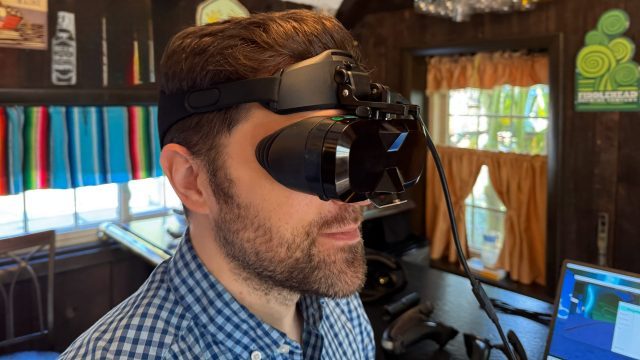
While I was impressed with the array of optical adjustments, stunning resolution, and vibrant colors of the MeganeX Superlight, I have the same reservation about the headset that I did with Bigscreen Beyond: the lack of built-in audio is a big oversight. I understand that there’s some people out there who are happy to deal with putting on their own headphones or earbuds over top of their headset, but my gut is that most people prefer the convenience of not having to deal with yet another thing to put on.
Bigscreen Beyond has since rectified this issue with an optional headstrap with on-board audio. And making it optional is fine; the people who want it can get it, and those that want to use their own aren’t stuck with it.
Shiftall tells me it’s also planning to build an optional headstrap with on-board audio, but it won’t be available (or probably even announced) before the headset starts shipping early next year. I understand that making and launching hardware is extremely difficult, but it’s a real shame to not have an audio headstrap available at launch.
Another issue I saw during my time with the headset is some pupil-swim in the lenses. That means when your eyes move in smooth pursuit (as opposed to saccading) across the lens, the scene seems to warp in an uncomfortable way.
This is typically an issue with poor lens calibration, and it isn’t uncommon with prototype headsets which aren’t being made with final tooling or calibration processes.
While there’s no reason to think the company can’t dial in its lens calibration before launch, getting it right is very important. So it’s something I’ll definitely want to get another look at closer to the headset’s release.
Assuming Shiftall manages to improve the pupil-swim—as it says it expects to—the company is on track to deliver a pretty impressive headset. The only major issues are that of cost and the lack of on-board audio. Those two factors ensure that the MeganeX Superlight will remain a niche headset. But if the company can find a clutch of users that want what it’s offering, it will have further proven out the existence of a hardcore PC VR crowd that’s willing to spend big to maximize their VR experience.
